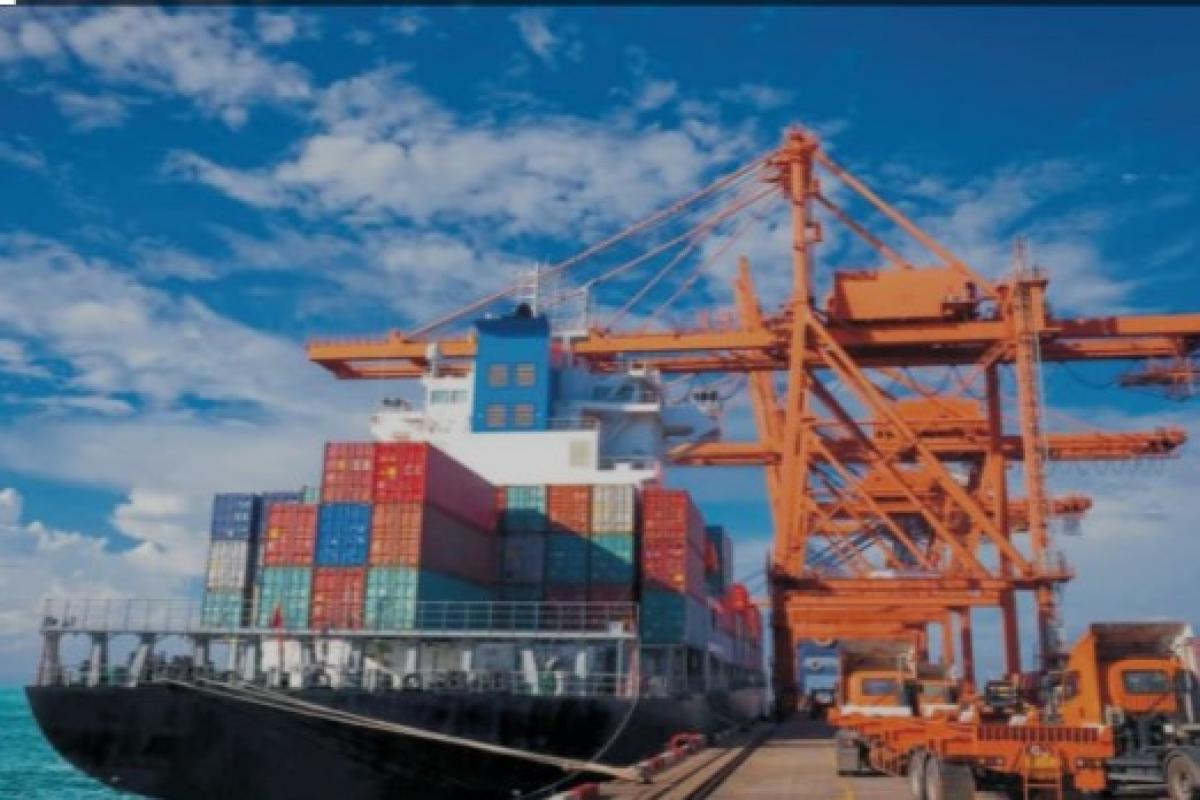Accra, Ghana - A wave of significant changes is sweeping through Ghana's maritime and logistics sector, creating a new landscape of opportunities and risks. Major port expansions, the implementation of 24-hour operations, and a landmark regulatory shift in liability are compelling the logistics and insurance industries to adapt and innovate. This review delves into the key updates in Ghana's ports, cargo handling, and liability frameworks, and examines the corresponding trends in the logistics insurance market.
Modernized Ports and Round-the-Clock Operations: A Double-Edged Sword for Insurers
The ongoing expansion of the Port of Tema and the commencement of 24-hour port operations at both Tema and Takoradi are designed to enhance efficiency, reduce vessel turnaround times, and boost trade volumes. For the insurance sector, these developments present a complex risk-reward scenario.
The increased capacity and streamlined processes at the ports are expected to reduce the risk of cargo delays and associated business interruption claims. The faster clearance of goods, facilitated by the Integrated Customs Management Systems (ICUMS), can also minimize the exposure of cargo to potential theft or damage while awaiting processing.
🌍 Need tailored insurance coverage?. Whether it is marine, motor, or property?. Get a free quote at Safeguard Insurance Brokers.
However, the transition to a 24/7 operational model introduces new risk factors that insurers must consider. The potential for increased human error due to night-time operations, heightened security risks under the cover of darkness, and the strain on existing infrastructure could lead to a rise in claims related to accidents, theft, and cargo damage. Insurers are now tasked with reassessing risk profiles for clients operating within this new framework, potentially leading to adjustments in premiums and the introduction of specialized coverage for night-time logistics.
Furthermore, the increased reliance on digital platforms for port operations and customs clearance elevates the risk of cyber-attacks. A significant disruption to the ICUMS or port operating systems could lead to substantial financial losses for logistics companies. This has spurred a growing demand for robust cyber insurance policies that cover business interruption, data recovery, and liability arising from a digital security breach.
The Game Changer: Amended Ghana Shippers' Authority Act and its Ripple Effects on Liability
A pivotal development is the amendment of the Ghana Shippers' Authority (GSA) Act, which now grants the authority the power to regulate port charges. This move is a direct response to long-standing grievances from shippers and freight forwarders over what they deemed to be arbitrary and excessive fees levied by shipping lines.
💼 Partner with InsureGhana to grow your insurance business. Learn More
This new regulatory oversight is expected to bring more transparency and fairness to port-related costs. For the insurance industry, this could translate into a more predictable claims environment, as disputed charges that often lead to litigation may be curtailed.
The amended Act also places a renewed focus on the liabilities of freight forwarders. With the GSA now acting as a regulator, there is an anticipation of stricter enforcement of service standards and contractual obligations. This is likely to drive an increased uptake of professional indemnity and freight forwarder liability insurance as logistics companies seek to protect themselves from potential claims arising from negligence, errors, or omissions.
The ongoing legal challenges by freight forwarders against major shipping lines over alleged unauthorized charges further underscore the shifting liability landscape. The outcomes of these cases will likely set important precedents and could influence the terms and conditions of liability insurance policies in the future.
Local Content in Marine Insurance and the Push for Domestic Solutions
🟡 Need vehicle insurance? Compare quotes from top insurers. Contact us at. Safeguard Insurance Brokers
In tandem with these operational and regulatory changes, there is a strong governmental push to increase the local underwriting of marine cargo insurance, as mandated by the Insurance Act. The National Insurance Commission (NIC), in collaboration with the GSA and the Ghana Revenue Authority (GRA), is actively promoting the benefits of domestic insurance, which include easier claims processing, retention of foreign exchange, and tailored products for the local market.
While challenges such as the capacity of local insurers to underwrite very large risks and competitive pricing remain, there is a clear trend towards greater domestic participation in marine and cargo insurance. This is leading to product innovation and a more customer-centric approach from Ghanaian insurance companies.
Scrapping of Transit Taxes: A Boost for Cargo Insurance in the Sub-Region
The government's initiative to scrap taxes on goods in transit is a strategic move to position Ghana as a major transit hub for its landlocked neighbors. This is expected to significantly increase the volume of cargo passing through the country's ports and road corridors.
🌍 Explore reinsurance insights and trends across West Africa at InsureGhana Insights.
For insurers, this presents a significant growth opportunity in the goods-in-transit insurance segment. As more cargo moves through Ghana, the demand for comprehensive insurance coverage against risks such as accidents, theft, and damage along the transit routes will inevitably rise. Insurance companies are likely to develop specialized products tailored to the specific risks associated with these transit corridors.
The Way Forward: A More Dynamic and Risk-Conscious Logistics Sector
The confluence of these developments is fostering a more dynamic and risk-conscious logistics sector in Ghana. The modernization of ports and the move to 24-hour operations demand more sophisticated risk management strategies from logistics providers. The enhanced regulatory environment and the focus on liability are compelling businesses to seek more comprehensive insurance coverage.
Key logistics insurance trends emerging from this new landscape include:
- Increased Demand for Cyber Insurance: Driven by the digitization of port and customs processes.
- Growth in Freight Forwarder Liability Insurance: As a result of the GSA's new regulatory powers and a more litigious environment.
- Expansion of Goods-in-Transit Insurance: Fueled by the growth of Ghana as a transit hub.
- Product Innovation and Localization: Spurred by the push for domestic marine insurance.
- Data-Driven Underwriting: A move towards using telematics and other data sources to more accurately assess risk and price premiums for logistics operations.
In conclusion, while the changes in Ghana's ports, cargo handling, and liability frameworks present new challenges, they are also catalysts for positive transformation within the logistics insurance sector. Insurers that are agile, innovative, and responsive to the evolving risk landscape will be well-positioned to support and benefit from the continued growth and modernization of Ghana's vibrant maritime industry.
Disclaimer: "The views expressed on this site are those of the contributors or columnists, and do not necessarily reflect insureghana's position. insureghana.com will not be responsible or liable for any inaccurate or incorrect statements in the contributions or columns here."

Insight
Expert insights and data-driven analysis from Ghana’s leading insurance knowledge hub

